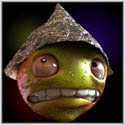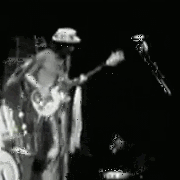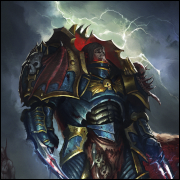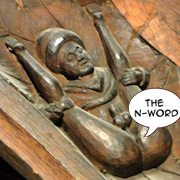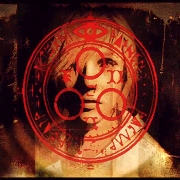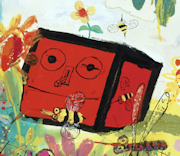|
COOL CORN posted:Is Fire in the Lake the best single volume work on the Vietnam war? IIRC, FitL doesn't cover the whole war, just up to the Tet offensive. Also it's pretty heavy on the social/political side of things in South Vietnam, and doesn't cover the military side or North Vietnam that much (disclaimer: I may be completely misremembering). It is, however, a great book and you should read it. There were some Vietnam posts in the thread a while ago: Cythereal posted:We Were Soldiers Once... And Young would be my pick for a good introduction. (I disagree, I found We Were Soldiers Once...And Young to be kinda boring. It's basically a description of the Battle of Ia Drang from the ground, which is cool and good, but doesn't really work as an introduction to the Vietnam War as a whole) Juanito posted:I really enjoyed Steel My Soldiers' Hearts: The Hopeless to Hardcore Transformation of U.S. Army, 4th Battalion, 39th Infantry, Vietnam. Very interesting stuff I seem to recall the chapter about STDs/prostitutes being pretty awful. FMguru posted:Karnow's Vietnam: A History was the standard one-volume work when I read it in the late 1980s; it may have been supplanted since then Cyrano4747 posted:"A Vietcong memoir" is the best book on the conflict o have read. It is the memoirs of the highest ranking defector. He came over with the boat people so he covers the entirety of the conflict both with the French and Americans. A human heart posted:Kill Anything That Moves is supposed to be pretty good gohuskies posted:Fire is an excellent Vietnam book - the other one I'd really recommend is War comes To Long An. It was written in the 1970s by embedded researchers and is a super fascinating political history of the Long An province of South Vietnam from the 50s through the 70s, as a study for how the war began and developed throughout the country. It's not so much a "history" of the war in the same way that Fire is, and it's not directly about the American experience, but it's an amazing contemporary account of how and why the war began and why the North and the Viet Cong would end up winning, and the analysis still rings very true. clean ayers act posted:Embers of War is a great book for the Lead up/French experience in Vietnam and does a great job explaining how the U.S. came to be involved
|
|
|
|

|
| # ? May 3, 2024 09:24 |
|
tumor looking batty posted:There's more than one? Well right how we are in the middle of a biotech Agricultural Revolution where we are updating what our plants can do pretty much on the fly. Before that we and the industrial one which started in lets say the 30's and killed the family farm and before that we and the creation of the steel plow which opened grasslands up to farming.
|
|
|
|
I've been reading Symphony for the City of the Dead recently, and it's really an astonishing profile of Dmitri Shostakovich and the music he made during the Seige of Leningrad (at least what I've read of it). It's very well-written and very well-told; I'd recommend it to anyone interested in Russia during WWII.
HighwireAct fucked around with this message at 21:43 on May 16, 2016 |
|
|
|
There's the slow one in Britain from approx 1600-19th century that is a story of an awful lot of things, between enclosure, new methods for increasing yields, new tools, mechanisation etc. and has a lot to do with the creation of positive feedback loops between the raising of draft animals, the use of their droppings as fertiliser, the freeing of labour and the shortening of harvest times etc.
|
|
|
|
|
Almost finished Batavia's Graveyard: The True Story of the Mad Heretic Who Led History's Bloodiest Mutiny by Mike Dash https://www.goodreads.com/book/show/128824.Batavia_s_Graveyard It's great, I had no knowledge of the event and little about about the Dutch East India Company and this book got me really interested in that era of history. It's compelling to read and pitched at non-academics, I'm going to track down some of Dash's other books now
|
|
|
|
EoinCannon posted:Almost finished Batavia's Graveyard: The True Story of the Mad Heretic Who Led History's Bloodiest Mutiny by Mike Dash Satan's Circus was pretty good. Its background politics are the years of decline in Tammany Hall.
|
|
|
|
kalthir posted:IIRC, FitL doesn't cover the whole war, just up to the Tet offensive. Also it's pretty heavy on the social/political side of things in South Vietnam, and doesn't cover the military side or North Vietnam that much (disclaimer: I may be completely misremembering). It is, however, a great book and you should read it. There were some Vietnam posts in the thread a while ago: You're the best
|
|
|
|
RC and Moon Pie posted:Satan's Circus was pretty good. Its background politics are the years of decline in Tammany Hall. Awesome thanks, that'll be my next Mike Dash, I also want to read Tulipomania as it covers Dutch history of a similar period to Batavia and bubbles like that are really interesting
|
|
|
|
sbaldrick posted:Well right how we are in the middle of a biotech Agricultural Revolution where we are updating what our plants can do pretty much on the fly. Before that we and the industrial one which started in lets say the 30's and killed the family farm and before that we and the creation of the steel plow which opened grasslands up to farming. The first one, when agriculture was invented
|
|
|
|
That would be the Romans or the Greeks or the Mayans. A far more sensible answer would be that what you want is a something like a biography of Jethro Tull (the man and not the band).
|
|
|
|
learnincurve posted:That would be the Romans or the Greeks or the Mayans. Nah, I'm more interested in the Neolithic Agricultural Revolution. Or maybe the whole history from the beginning of all agriculture to today. To say there are multiple Agricultural Revolutions is fair I suppose but I mostly think of it as one revolution that has lasted 13,000 years or so and the different Revolutions of it are merely parts of the grand total.
|
|
|
|
What's a good read on US history post-WW2 through the 70's? Emphasis on the 60's/JFK if possible and obviously free of US bias. Also, how much do you all remember when you read history, especially large books which cover a lot of ground? I find names difficult to remember but years a lot easier. But I put so much focus on remembering everything about the chapter I am reading that sometimes I just forget details from previous chapters. I'm new to reading history so is there a method for remembering? I tend to understand things in a general timeline sense but have a hard time going back and trying to explain things.
|
|
|
|
Brodeurs Nanny posted:What's a good read on US history post-WW2 through the 70's? Emphasis on the 60's/JFK if possible and obviously free of US bias. Rick Perlstein's Nixonland is great. I haven't read his Before the Storm, but found The Invisible Bridge to be lacking. The Ronald Reagan parts are good, but he clearly hates Jimmy Carter and fails to round his character out at all. Also, it's not nearly the cultural history that Nixonland was. I also recommend The Race Beat: The Press, the Civil Rights Struggle, and the Awakening of a Nation by Gene Roberts and Hank Klibanoff. It's not a comprehensive history of the Civil Rights era, but a handful of major events and the hows and whys of things that were reported. It also deals with press failings and how the south ended up completely different than what happened in Watts just a few years later. Once you get a good grip on the Civil Rights era, I really liked There Goes My Everything: White Southerners in the Age of Civil Rights by Jason Sokol. It's not a beginner's book and assumes you know a lot about southern geography, but it's one of the few books I've seen tackle the other side. Plus, it really deals with the fallout in the years after.
|
|
|
|
Brodeurs Nanny posted:What's a good read on US history post-WW2 through the 70's? Emphasis on the 60's/JFK if possible and obviously free of US bias. Just focus on the big themes general outline of events and the authors argument. You're never going to remember the details. Names and dates are trivia that you can look up. Edit : think of it this way. Even if you can't remember as important a name as "Hitler" you're still good to go if you can talk broadly about his policies and their impact.
|
|
|
|
That's good to know. I tend to devise a general narrative arc and remember specific important events, so I suppose that's good enough for now.
|
|
|
|
Lot of historians know how to write academic papers but not how to write in an entertaining way. I tend to read the reviews and if Mr I'm a real Historian don't you know, shows up and bitches about the narrative style then I know they have tried to make it readable for people wanting to learn, rather than being a book for people who already know.
|
|
|
Brodeurs Nanny posted:Also, how much do you all remember when you read history, especially large books which cover a lot of ground? I find names difficult to remember but years a lot easier. But I put so much focus on remembering everything about the chapter I am reading that sometimes I just forget details from previous chapters. If you understand the overall story and the forces at work that made things happen details are not that important, and if you take a good basic understand of the cause-effect and story with you when you come back to the subject things you forget will slot in to place nicely.
|
|
|
|
|
Brodeurs Nanny posted:That's good to know. I tend to devise a general narrative arc and remember specific important events, so I suppose that's good enough for now. Similarly, if you're ever taking notes on a book it's an excellent idea to force yourself to also provide a very brief summary of the book to go with your more detailed notes. I usually try and limit mine to 2 or 3 sentences, because then it's a completely bare bones statement of the thesis. This is incredibly useful if you're ever trying to communicate the general idea of a work to someone else, like in a class or in a meeting with a professor. Or if you're recommending a book you liked to a friend.
|
|
|
|
Can anyone recommend a good book on the eastern front in WW2? Whenever I look in a bookshop, it's literally all about the western front with a few token books about the Pacific and China .
|
|
|
|
Hemp Knight posted:Can anyone recommend a good book on the eastern front in WW2? Whenever I look in a bookshop, it's literally all about the western front with a few token books about the Pacific and China . Depends what you're looking for. I can recommend a couple books on the Russian side. If I had to recommend just one book, it would be A Writer at War by Vasily Grossman. Grossman was a famous writer who served in the Red Army as a correspondent for the army newspaper, and reported on everything from the initial Soviet collapse and retreat through the Battle of Stalingrad and the liberation of concentration camps by Soviet soldiers at the end of the war. While doing all this and writing articles for the Red Army newspaper, he also kept a series of diaries, which a couple historians have gone through and edited into a coherent narrative of Grossman's experiences. So 80-90% of the book is straight translations of his experiences, with the editors providing some context for the overall course of the war and Grossman's activities between journal excerpts. Other than that, Ivan's War by Catherine Merridale is an excellent book about the ordinary soldiers who fought on the Eastern Front for the Soviets, based on archival research and a lot of interviews with aged Red Army veterans. It's an academic history so it's thorough and has a ton of information in it, but other people in this thread have complained in the past that Merridale's writing was too dry and didn't work for them, so buyer beware. I like the book though. And Stalingrad by Antony Beevor has a very good reputation, though I've personally never read it so I can't in good conscience recommend it. One final recommendation, you can't really think of the Eastern Front without also thinking of the Holocaust in the East. The Eastern Front was as much an ideological war of annihilation as it was a strategic war of operations and tactics, and the Nazi military was deeply involved in making it a racial war of extermination of Aryan German Nazis versus Communist Slavs and Jews. The result was that millions of people were killed behind the war's front lines in what's sometimes called the Holocaust by Bullets or other similar terms, since it turns out a significant portion of the Holocaust's victims were summarily shot instead of being shipped to concentration camps. If this is something you're interested in learning about, a classic account of this from the German perspective is Ordinary Men by Christopher Browning, which details how ordinary men from Germany could become systematic mass murderers of Jews in the occupied parts of the Soviet Union. Seriously though, buy A Writer at War, I recommend it all the time in this thread and I don't think anyone who's bought it has ever regretted it.
|
|
|
|
John Erickson was the first western historian to really do proper, in-depth work on the Eastern Front, getting access to Soviet archives and working them like a pro. The Road to Berlin and The Road to Stalingrad are his two big books and are foundational works in their field, but they may have been superseded by later research (both are from 1983).
|
|
|
|
Brodeurs Nanny posted:What's a good read on US history post-WW2 through the 70's? Emphasis on the 60's/JFK if possible and obviously free of US bias. Take notes on each chapter and read over them after you've read the book. Hemp Knight posted:Can anyone recommend a good book on the eastern front in WW2? Whenever I look in a bookshop, it's literally all about the western front with a few token books about the Pacific and China . this book is supposed to be cool and it covers the great patriotic war in detail for obvious reasons http://www.amazon.com/Stalins-Wars-World-Cold-1939-1953/dp/0300136226 A human heart fucked around with this message at 01:34 on May 27, 2016 |
|
|
|
learnincurve posted:Lot of historians know how to write academic papers but not how to write in an entertaining way. I tend to read the reviews and if Mr I'm a real Historian don't you know, shows up and bitches about the narrative style then I know they have tried to make it readable for people wanting to learn, rather than being a book for people who already know. Historians writing for public consumption is a pretty new field in history. It will more then likely be another 20 or so years before a generation of historians raised to write public histories really starts publishing.
|
|
|
|
TrekBek posted:I'm looking for books on the Yazidi, but I'm having trouble finding any besides their actual holy books; I'd like something on their history and culture. Basically anything y'all know about would be great, even if they're just a small focus of a greater work. For more fringe stuff like this, Wikipedia sometimes has further reading sections that list good (and bad) material. And if that fails there's always the reference section. Even then, there's sometimes the problem that many of the best works on a subject just plain won't be in English. I've been contemplating a serious attempt at becoming fluent in Russian just because so many Central Asian works haven't been translated into English because there's zero interest. e: While I'm here: Histories on Venice and maybe some of the other Italian states pre-Napoleon. Schizotek fucked around with this message at 05:47 on May 27, 2016 |
|
|
|
vyelkin posted:And Stalingrad by Antony Beevor has a very good reputation, though I've personally never read it so I can't in good conscience recommend it. I can recommend Stalingrad, it's a good book to start reading about Eastern Front. It covers both German and Soviet sides. I can also recommend Ordinary Men, but like was said it's not military history but more of a study of Holocaust and psychology of men.
|
|
|
|
Schizotek posted:e: While I'm here: Histories on Venice and maybe some of the other Italian states pre-Napoleon. I own and quite enjoyed Roger Crowley's City of Fortune which is about the rise of Venice in the Middle Ages. It's well written and engaging pop history that's easy to get through, but he also quotes a lot of primary sources so it's not as superficial as a lot of pop stuff.
|
|
|
|
John Julius Norwich (the guy who did that epic three-volume history of Byzantium) did a single-volume history of Venice. I've not read it, but based on his other work, it's probably worth investigating. He also has a single-volume general history of the Mediterranean.
|
|
|
|
Any good books on Warlord-era China? Specifically the 1920s. Edit: I've been interested in that era since I read Corto Maltese in Siberia as a kid. Already read The Bloody White Baron which was great, but I'm looking for something on China proper. MonsieurChoc fucked around with this message at 17:09 on May 28, 2016 |
|
|
|
FMguru posted:John Julius Norwich (the guy who did that epic three-volume history of Byzantium) did a single-volume history of Venice. I've not read it, but based on his other work, it's probably worth investigating. He also has a single-volume general history of the Mediterranean. It's pretty good, not super detailed but will give you a really good overview.
|
|
|
|
I am now looking for pre-colonial African history books. Any time period is fine, I tend to like ancient stuff. And not North Africa, south of the Sahara.
|
|
|
|
Grand Fromage posted:I am now looking for pre-colonial African history books. Any time period is fine, I tend to like ancient stuff. And not North Africa, south of the Sahara. But have fun impoverishing yourself if you want anything besides overly general continent spanning histories or weird Black Separatist insanity. http://www.amazon.com/Timbuktu-Songhay-Empire-Contemporary-Documents/dp/9004128220 e: Actually Mali seems to buck the trend a bit and has a good amount of stuff written. The Royal Kingdoms of Ghana, Mali, and Songhay: Life in Medieval Africa by the McKissack's seems to get some praise. Schizotek fucked around with this message at 18:31 on May 30, 2016 |
|
|
|
Does this thread have a general Audible recommendation list? Just finished a book on Frank McLynn's book on good ol' Genghis Khan and am looking to spend a new credit. I don't really care about subject, just want it to be interesting, have a good narrator, and a strong enough narrative thorough line that I can concentrate on it (I've found that books that are too broad in their focus are sometimes hard to follow in audiobook form).
|
|
|
|
FMguru posted:John Julius Norwich (the guy who did that epic three-volume history of Byzantium) did a single-volume history of Venice. I've not read it, but based on his other work, it's probably worth investigating. He also has a single-volume general history of the Mediterranean. I love Norwich, but I found his history of the Mediterranean to be underwhelming. Read The White War: Life and Death on the Italian Front 1915-1919 a couple of weeks ago, got it based on a recommendation here. It was...ok? The combat and political stuff was good, but the book often veered off into describing the lives (and deaths) of various poets, politicians, etc., which I found pretty dull. Just finished The Emperor of All Maladies: A Biography of Cancer , also recommended by someone here. I really liked it, it does a really good job describing everything in a fairly simple manner and the writing style is enjoyable. Shattered Sword: The Untold Story of the Battle of Midway is terrific. Is Tully's Battle of Surigao Strait similar? I wasn't really blown away by Hornfischer's stuff, though (The Last Stand of the Tin Can Sailors, Neptune's Inferno). It wasn't a slog, and the books were well structured and gave me a good idea of what was going on even though I went into them with very little knowledge of the Pacific war, but I felt they could have been significantly shorter. Probably gonna try getting through Wilson's Heart of Europe next. Wish me luck.
|
|
|
|
Mantis42 posted:Does this thread have a general Audible recommendation list? Just finished a book on Frank McLynn's book on good ol' Genghis Khan and am looking to spend a new credit. I don't really care about subject, just want it to be interesting, have a good narrator, and a strong enough narrative thorough line that I can concentrate on it (I've found that books that are too broad in their focus are sometimes hard to follow in audiobook form). You may want to check the Audiobook thread. As for good subject matter and good narrators, you can't go wrong with Will Durant's The Story of Civilization series.
|
|
|
|
So I've started reading Massie's Castles of Steel and holy gently caress I'm mad at myself for buying it two years ago and not starting it till now. Any similar books that people can recommend? I've already read Shattered Sword and I know Dreadnaught is supposed to be good as well. Also interested in finding a few good books on u-boats during WWII and the sinking of the Bismarck.
|
|
|
|
Handsome Ralph posted:So I've started reading Massie's Castles of Steel and holy gently caress I'm mad at myself for buying it two years ago and not starting it till now. I'd recommend reading Dreadnaught first, then Castles of Steel, since the latter is effectively a sequel to the former. I realize that that's like a 1200-page commitment because Massie.
|
|
|
|
smr posted:I'd recommend reading Dreadnaught first, then Castles of Steel, since the latter is effectively a sequel to the former. I realize that that's like a 1200-page commitment because Massie. Yeah I'm already about 300 pages into Castles of Steel, so I'll likely go back and read Dreadnaught afterwards. From what I've heard, it won't detract from either book reading them that way.
|
|
|
|
Handsome Ralph posted:Any similar books that people can recommend? I've already read Shattered Sword and I know Dreadnaught is supposed to be good as well. Last Stand of the Tin Can Sailors and Neptune's Inferno are great reads, the former is about the Battle off Samar and the latter covers the naval side of Guadalcanal.
|
|
|
|
Anyone got a recommendation on a good book concerning the Weimar Republic?
|
|
|
|

|
| # ? May 3, 2024 09:24 |
|
Peukert's The Weimar Republic: Crisis of Classical Modernity is a really good place to start and an adequate single volume if you're only going to read one. It's well written only about 350 pages and assigned in a ton of classes so cheap copies are readily available.
|
|
|









